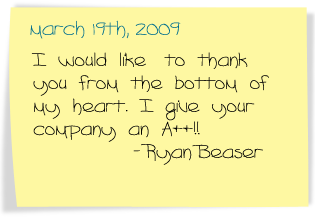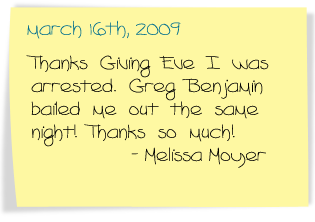Bail Bond FAQ's
Below are several frequently asked questions. If you have any questions that are not answered below, please feel free to contact us at the number below.
Call NOW!
(714) 279-0333, (213) 320-7060
(562) 232-4848
What is a bail bond?
A bail bond is the document that is presented to the court to secure the release of a defendant who is in custody, and to ensure the appearance of the defendant at all required court hearings.
How does a bail bond work?
Typically, a bail amount is set by the local court jurisdiction following the arrest of a defendant. A family member, a close friend, or sometimes the defendant will contact a bail agent to arrange for the posting of the bail bond. The family member or friend that is guaranteeing the bond, also known as the indemnitor or co-signer, will complete paperwork and pay the premium, which is a percentage of the bond amount. By signing the paperwork, the indemnitor is guaranteeing that he or she will pay the full amount of the bond if the defendant fails to appear in court. Typically, collateral is taken from the indemnitor to secure the guarantee.
Who is an indemnitor/guarantor or Co-Signer?
An indemnitor/guarantor or Co-Signer is an individual, usually a friend of family member of the defendant, who agrees to indemnify the bail agent against a loss and is someone willing to sign for the defendant and be responsible for the following:
- Makes sure the defendant shows up for all court appearances
- Makes sure the premium is paid in full
- Is financially responsible for the full Bail Bond amount if the defendant does not show up for all court appearances
Sometimes the bail agent will require collateral to secure the guarantee of the bond and ensure the defendant’s appearance in court. Collateral is anything of value that is pledged to secure the bond, such as cash, property, jewelry, etc. Upon complete resolution of the defendant’s case and payment of all premiums in full, the collateral is returned to the indemnitor.
When do I get my collateral back?
In most cases, collateral is returned to the defendant upon discharge or exoneration of the bail bond.
How is bail determined?
A judge or magistrate normally sets the amount of bail for a particular case according to a county bail schedule and the particulars of a case.
How can I pay for a bail bond?
Acceptable forms of payment are typically cash, credit card or Cashiers Check or Money Order. Also, depending upon the type of case who is working and type of collateral a payment plan option may be available.
How much do bail bonds cost?
The fee for a bail bond is restricted by the California Department of Insurance which regulates the fees that Bail Bond Companies charge to the consumer, and in California that fee is 10% of the bail amount that is paid to the Bail Bond Agency. There are cases where an individual could qualify for 8% bail bond premium.
Can I handle the bail out process over the phone or internet?
Yes, in some cases we can complete the bail bond process over the phone but we will need an original signature on the Bail Bond paperwork and our Mobile Agents can come to you.
How long does it take to do the paperwork?
Usually less than 30 minutes. However, if you have questions we will stay until all your questions are answered.
Do I get my money back after the defendant goes to court?
No, that money is non-refundable upon the release of the individual from jail for the bond we posted. The Posting of the Bail Bond is for the Release of the person in Custody only. How their case ends or sentenced, (if sentenced) has no bearing on the release of the Defendant.
![]()
Get more details by speaking to a licensed Bail Agent. Call one of the numbers listed below:
Call NOW!
(714) 279-0333, (213) 320-7060
(562) 232-4848
Bail Bonds Only 3% Down! Easy Payment Plans


